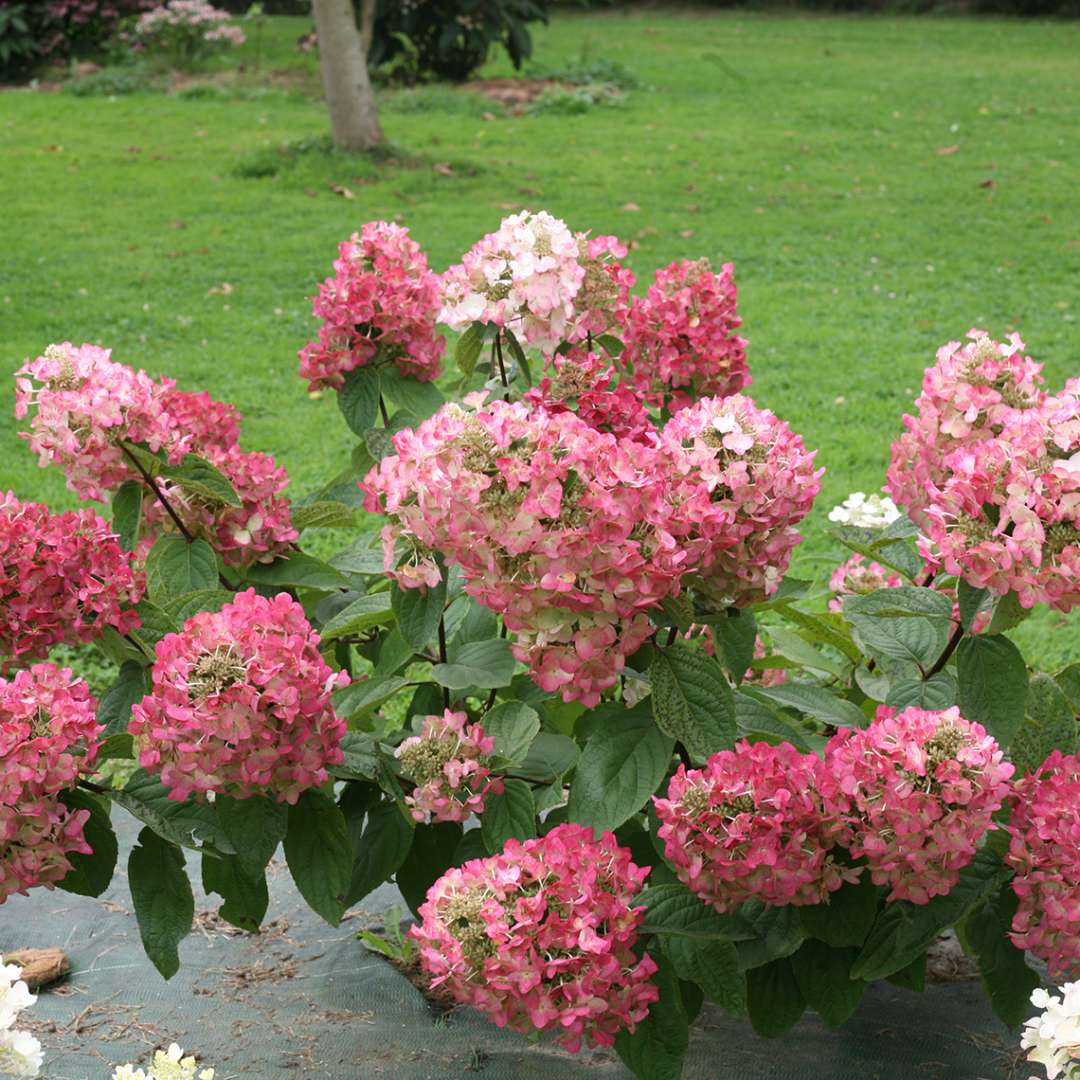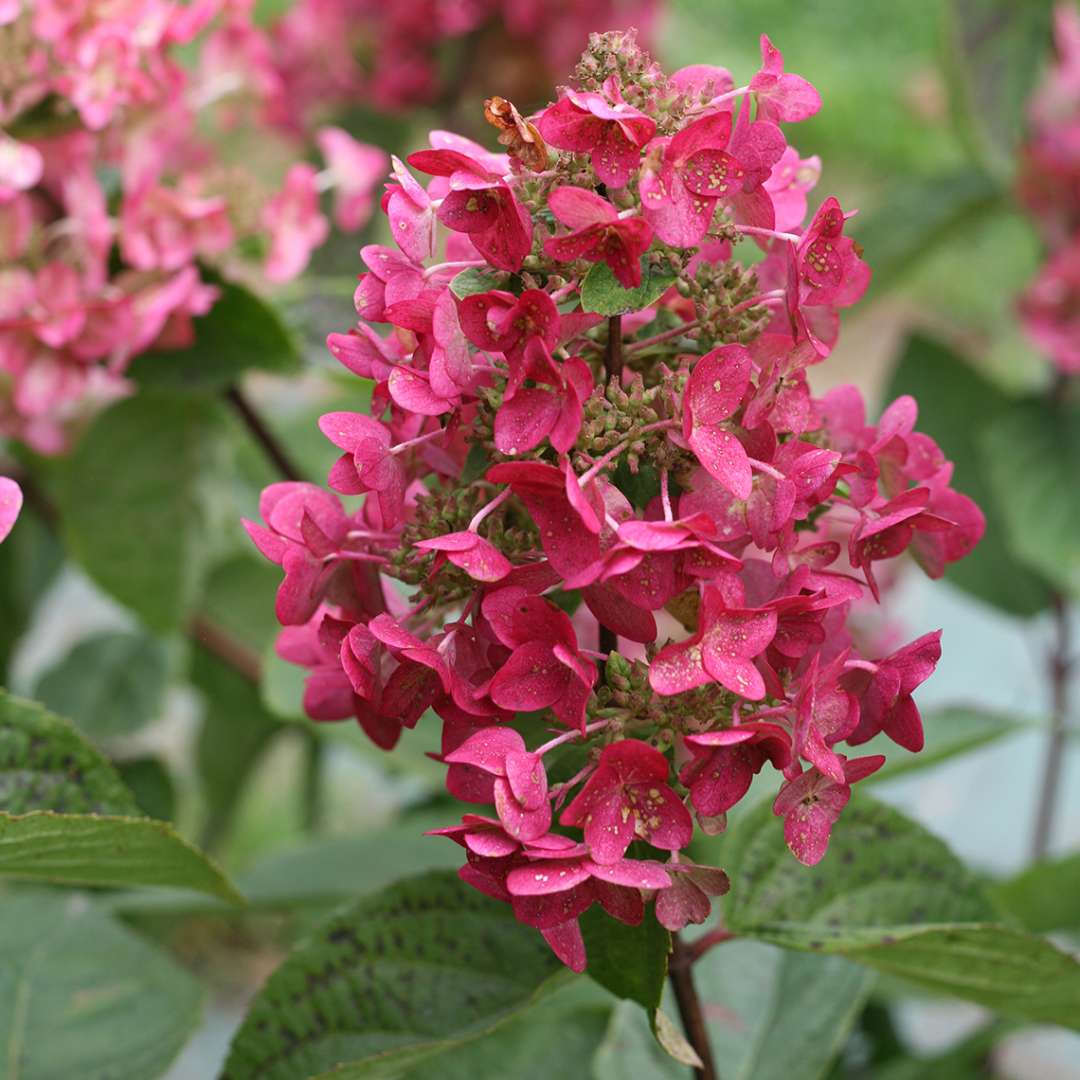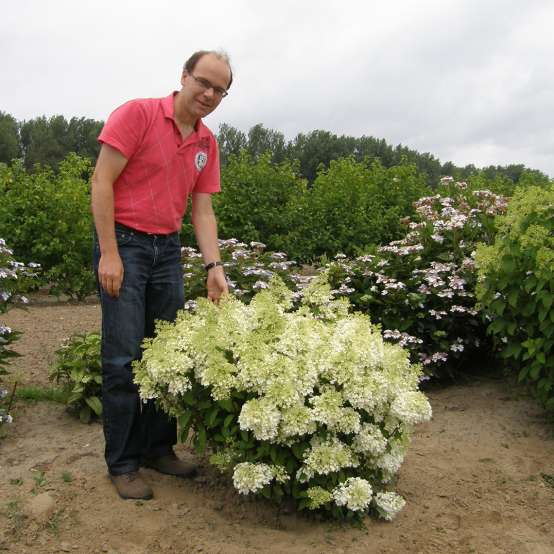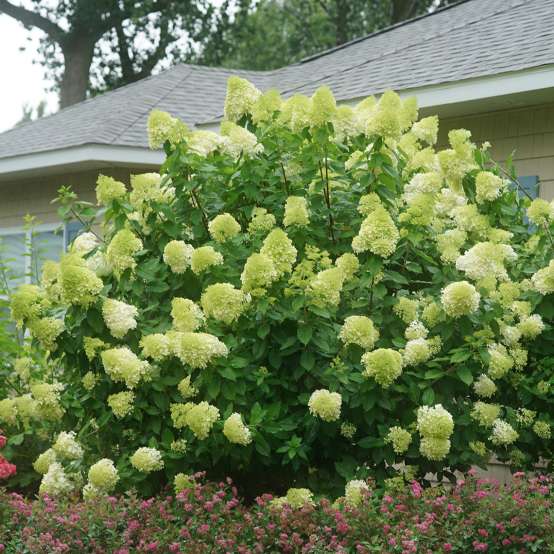Clicking the following controls will change the main image displayed above.

Meet the Breeder
Dr. Johan Van Huylenbroeck
Belgium
MEGA MINDY®
Hydrangea - Panicle
Hydrangea paniculata
'ILVOMINDY'
PP#23,070; CBR#4911


- Months of color
- Hardy
- Easy care
- Description
Mega Mindy® is a fast growing hydrangea with large flowers that emerge white and age to a lush red-pink in late summer. It was developed by Dr. Johan van Huylenbroeck, the same breeder as Pinky Winky® hydrangea, who once again honors a children's TV character with the name - this time because the flower color matches the Belgian heroine's costume.
- USDA Zone
- 3 - 8 (-40°F/-40°C)
- Exposure
- Full sun, Part sun
- Height
- 4.5 - 5.5'
- Width
- 4.5 - 5.5'
- Finish Time
- 1 season
- Type
- Deciduous
- Bloom Time
- Summer
- Flower Color
- White, Pink
- Foliage Color
- Green
- Liner Sizes
- 2 1/4", 4"
General Care
Soil
Adaptable to most any soil except very wet or excessively alkaline soils.Pruning
In late winter or early spring, cut back by about one-third its total height, just above a set of large buds. This ensures that the growth for the season will come vigorous buds lower on the plant and also serves to remove any remaining dried blooms. Alternatively, cut back in autumn once the plant has gone completely dormant. May be cut back harder if desired, though this tends to produce stems that are unable to achieve maximum stem strength the following season.Uses
Specimen; mixed borders; mass plantings. Makes a good hedge or screen. Excellent for cut flowers, both fresh and dried.Growing Tips
Panicle hydrangeas are the most sun tolerant hydrangeas and are also resistant to wilting. In cooler climates, full sun is recommended for best stem strength and flower set. Flower color is unaffected by soil chemistry. If flowers turn brown and dry instead of aging to pink or red, this indicates that the plant needs more water or that nighttime temperatures are too high for the transition to occur.Features: Alkaline soil, Clay soil, Cut flower, Fall interest, Salt tolerant
Filters: Botanical genus: Hydrangea, Common name: Hydrangea - Panicle, Retail program: Local Roots®, USDA Zone 3, USDA Zone 4, USDA Zone 5, USDA Zone 6, USDA Zone 7, USDA Zone 8, Exposure: Full sun, Exposure: Part sun, Bloom time: Summer, White flowers, Pink flowers, Green foliage
Features: Alkaline soil, Clay soil, Cut flower, Fall interest, Salt tolerant
Filters: Botanical genus: Hydrangea, Common name: Hydrangea - Panicle, Retail program: Local Roots®, USDA Zone 3, USDA Zone 4, USDA Zone 5, USDA Zone 6, USDA Zone 7, USDA Zone 8, Exposure: Full sun, Exposure: Part sun, Bloom time: Summer, White flowers, Pink flowers, Green foliage






